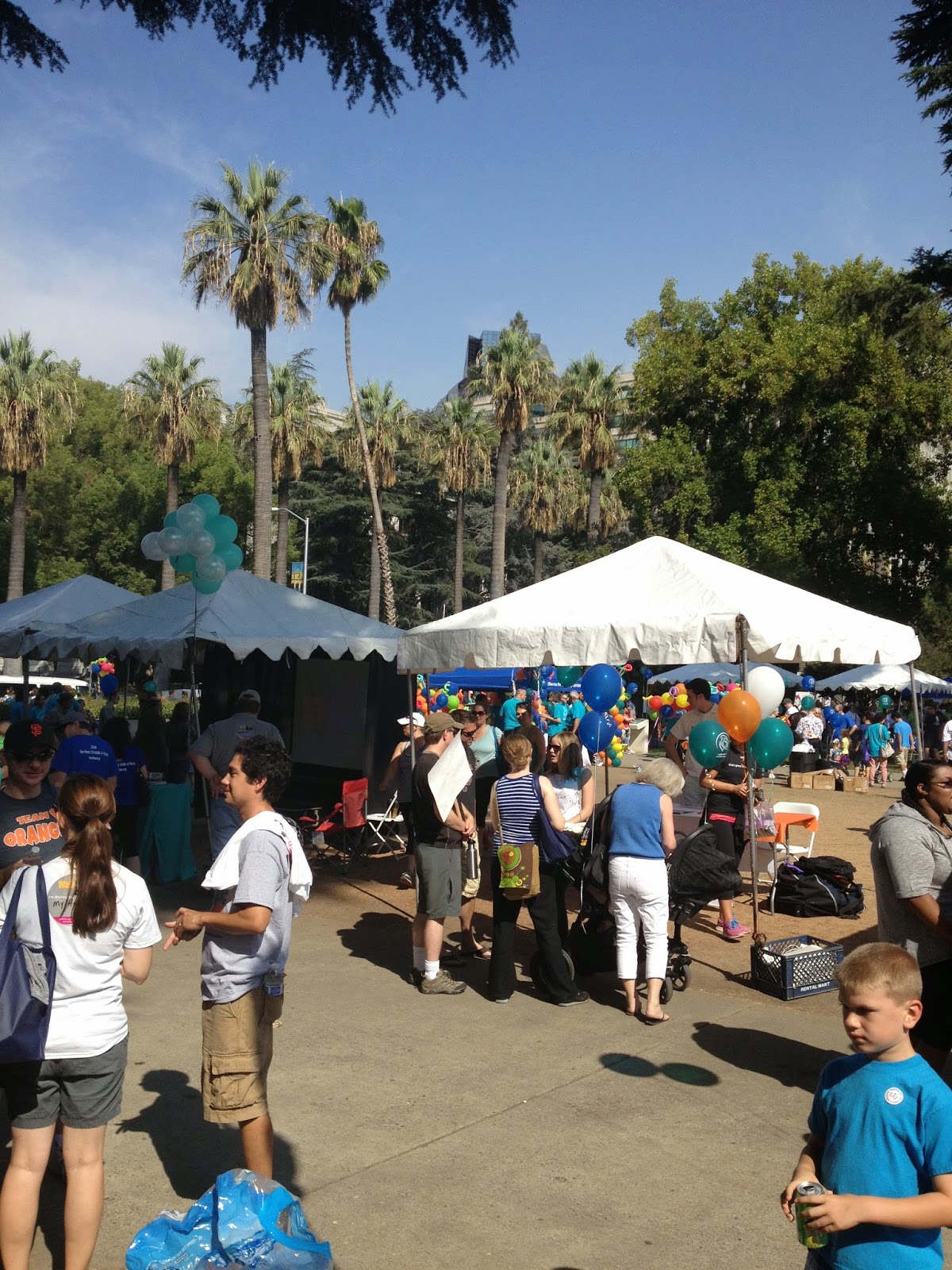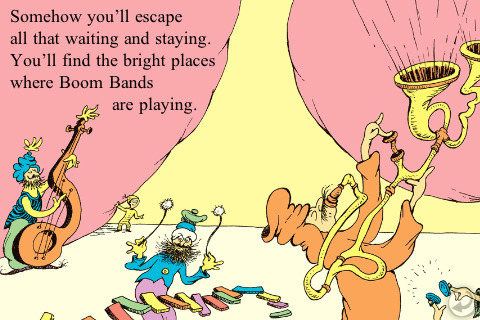Infertility is hard to talk about, for those who
live with it and for those who have never experienced it. I imagine that it’s
mostly because infertility revolves around reproduction, which revolves around
what happens in a couple’s bedroom. That makes it a touchy subject.
However, while people may be uncomfortable
talking about reproduction, they bring it up children all the time without batting an eye: “How long have you been married?” is always followed by, “Do
you have any children?” A seemingly well-meaning question, one asked out of
curiosity with perhaps an attempt to find common ground. Yet that can sometimes
be a difficult or awkward question when asked of someone who is infertile, especially
because the answer, “No.” is often followed up with the question of, “Why not?”
or “When will you have children?”
This leaves someone who is infertile in an
awkward spot. If they answer honestly, “We don’t have children because (insert
IF diagnosis here)” the question asker often feels uncomfortable because they
a) don’t understand what that means, or b) didn't really want to know that much
about your reproductive system. Sometimes, answering the question honestly also
leads to well-intentioned but uneducated advice: “Well, I am sure if you just
relax, it will happen” which is crushing when you have a medical diagnosis for
a condition that prevents you from having children. It implies that “just
relaxing” will take your disease away.
I’d like to change all that. I would like people
to feel comfortable answering the often asked question. I would like people
know and understand infertility and everything that goes with it. If the
general public has an understanding of what infertility is and what the
treatment options are, as well as an understanding that anyone can be
infertile, it will lead to more compassion and understanding all around.
This is why, when my online friend Meagan offered
to guest post on this blog, I was delighted and immediately took her up on her
offer. It is important to understand everyone’s story and diagnosis, to hear
their own perspective and outlook, to better understand what other’s go through
so that we may be more sensitive, more understanding and more supportive.
Let’s break the silence about infertility
together. So everyone, meet Meagan!
Tell us a little about yourself. I am 30 and hubby is 32. We
have been married for 2 years, but have been together for almost 10!! We live
in the Deep South. In the two years we have been married, I have watched
(almost like an outer body experience) my body fail me. Right after we were married
(two weeks) I was diagnosed with a dermoid tumor that had to be surgically
removed. During that surgery it was discovered I had Stage 2 Endometriosis. We
were told that if we were going to have kids, it was now or never. We never got
the "honeymoon" period of being newlyweds. We had a missed ectopic
that resulted in another surgery to remove my right tube less than a year after
my previous surgery. This has left me with an abnormal right ovary (I do not
ovulate from this side) and a poly-cystic left ovary and a left tube. In
literal terms, I am at 50% capacity on natural TTC.
The topic of infertility is often a taboo
subject, why do you think that is and what do you think we can do to change
that? I think it's
because it's uncomfortable to talk about. It's deeply personal. IF consumes who
that person is, and no one knows how to deal with that. To change that
perception, we need to educate. I operate under the rule that I cannot get
upset or mad at anyone if they say something insensitive because they do not
know what I am going through. In that regard, I try to live my life according
to that thought. I cannot walk a mile in someone else's shoes if I make no
effort to understand what they are dealing with. That requires me to educate
myself and LISTEN. I think if we can reach the "everyday" person we
will make better headway in raising awareness of IF.
How long have you been trying, what is your
diagnosis, what treatment methods have you tried (and if you feel comfortable)
what has been the financial cost of treatment? We have only been trying a
little over a year. In that time, we have been pregnant once that ended in a
missed ectopic. That, in turn, ended up in emergency surgery because of a
partially ruptured right tube. Our IF issues are strictly on me, the double
whammy of Poly-Cystic Ovarian Syndrome (PCOS) and endometriosis have made it so
my RE was amazed we got pg in the first place. Right now, I am at the very
beginning of my IF journey. We are doing Clomid (I am on my third cycle now) with
TI (timed intercourse) and trigger. Our IF journey will lead to IVF, we were
told that in our initial consult and it hasn't changed. It knocks the wind out
of your sails to hear that. Financially, even doing TI (which is cheap
in comparison) is still quite expensive and very time consuming.
Many people have ideas (or misconceptions) in
their head already of what treatment will be like. Did anything about treatment
surprise you? Oh gosh, yes!
I remember going into our consult with the RE thinking "this is it! We are
gonna get our baby!!" I figured I would swallow a magic pill and end up
pregnant. I was COMPLETELY wrong!! I didn't think that it would be so time
consuming. I have to plan my life around monitoring appointments, BDing, etc.
It's crazy!! I, in essence, feel like a lab rat every month. Also, I hate
needles and in IF, your life revolves around them.
How does being infertile affect your life? IF consumes my life. No
matter how hard I try not to let it, it sneaks in and takes over. The thing
about infertility that no one thinks about is that it IS a disease. It affects
a person physically, mentally, and emotionally. I thought I had a lot of
triggers in life being a loss mom, but adding IF on to that and it's
ridiculous!! I have been told so many times that I need to relax and reduce my
stress and I will magically get pregnant. No, I will not if my ovary does not
produce a good enough egg. I think that is where there is a disconnect. Even my
hubby thinks that if I reduce my stress, it will be "fixed". IF
doesn't just go away because stress is reduced or you lose weight or get drunk.
It is still there, lurking, waiting to remind you of what you cannot do.
What made you decide to “come out” about your
infertility? OR Are you open about your infertility? I think for me, it was
because I didn't want to handle the questions. Those that knew about our loss
were already asking if we were going to try again. I wanted to cut those off at
the pass if I could. Not to mention, where I live in the Deep South, having
children is a right of passage. We (women) are raised that having children is
the greatest blessing we can have. I believe that is true, but I do not think
that loss moms or IF moms need to be looked down on because we cannot do what
others can. I do not go around shouting that I am infertile, but if someone
asks, I am very open about what we are dealing with. I do not believe in sugar
coating things and I lay it out straight. It tends to make people think about
those probing questions b/c sometimes the answer is not what they want to
hear.
Everyone knows that October is Breast Cancer
Awareness Month but few people know it is also Pregnancy Loss and Remembrance
month. As someone who has experienced a loss, what do you think is the most
important thing for people to know in order to support someone close to them
who has experienced a loss? I just wrote about this in my blog post. I think
the most important thing to do for someone who has experienced loss is to
listen. Be present. There is a lot of stigma associated with pregnancy loss.
Loss moms experience a lot of guilt b/c they feel it's their fault their baby
died. It's not. Being there, being present, and supporting loss parents during
this raw time is the best thing to do. Do not ask if you can do something, do
it. They will thank you, after, when they can breathe again. My best friend
drove 2 hours to be with me after our loss. I could hardly say two words to
her, but she was there for a whole weekend to help us. She cleaned, brought me
flowers, and held my hand. I will never forget that as long as I live. She did
not trivialize what we went through and she held on to our memory with us. A
good thing to do is, if you know loss parents, to light a candle on October
15th. It is National Infant and Pregnancy Loss Remembrance Day. Light a candle
in honor of a child and let that parent know. It will mean more to them than
anything. Any time you can mention their child, you are validating their loss,
reminding them you have not forgotten.
What is something you would really like people to
understand about infertility? It doesn't go away if you "just relax"
or "go on vacation" or "get drunk". It is a disease like
diabetes. It's always there and for some it requires taking daily medications
to have a body even marginally ready for pregnancy. Just for IF, I take 5
different medications and supplements to prepare my body. I have been doing
this since July. It sucks to be reminded daily that I take this pill b/c this
is low or I take this b/c my cycles are stupid. It will never go away and
because of everything we are having to go through, hubby and I are talking
about whether we want more than one child. This is something those unaffected
by IF will never understand. It's heartbreaking and soul shattering and
physically exhausting. It's a roller coaster with more valleys than peeks, but
it jerks you around hard. It's degrading, demeaning, and plants a scarlet
letter across your chest. It's scars, tears, and mourning of hopes and dreams.
Mostly, it's lonely. Couples have been cast off the island of the fertiles.
They have been relegated to the island of misfits, where their intimate life is
figured down to a science.
Thanks so much for letting me do this!! I
appreciate the opportunity.












